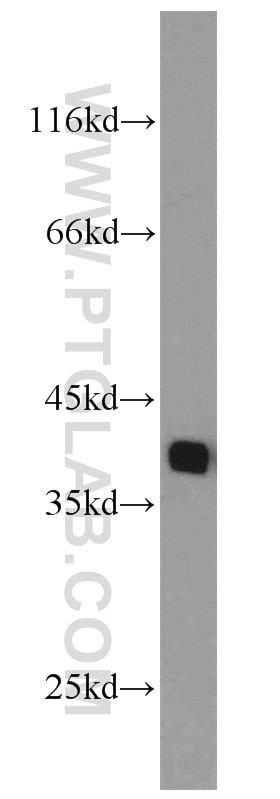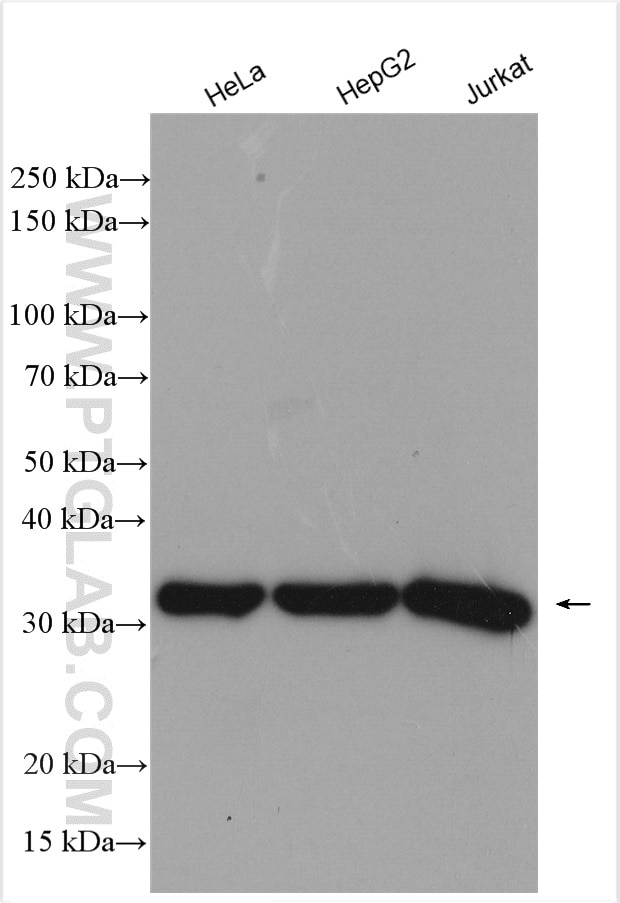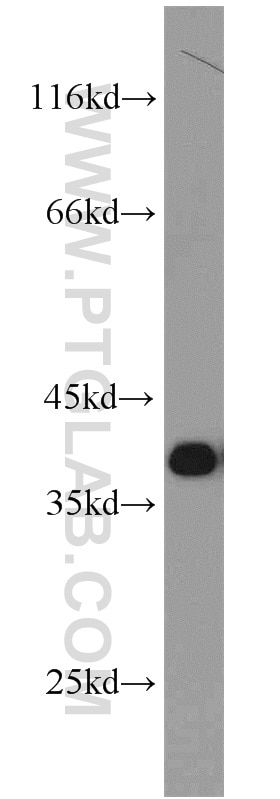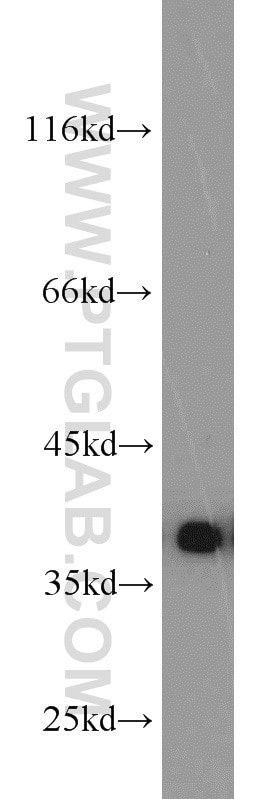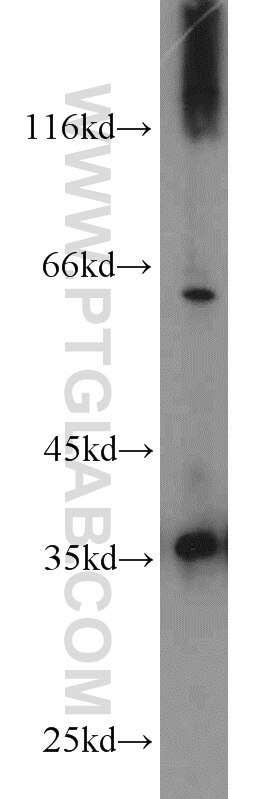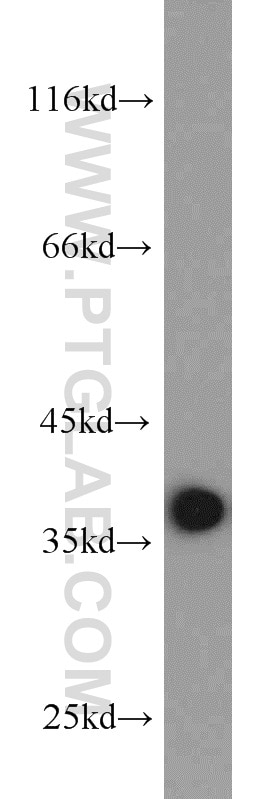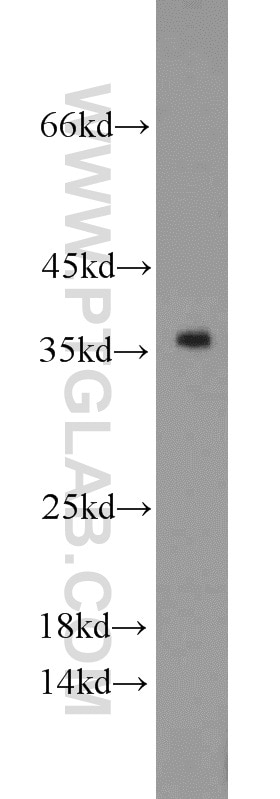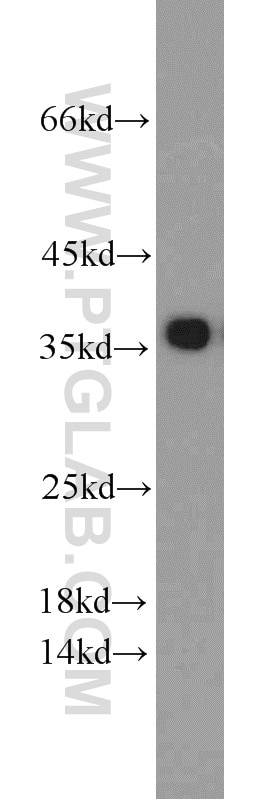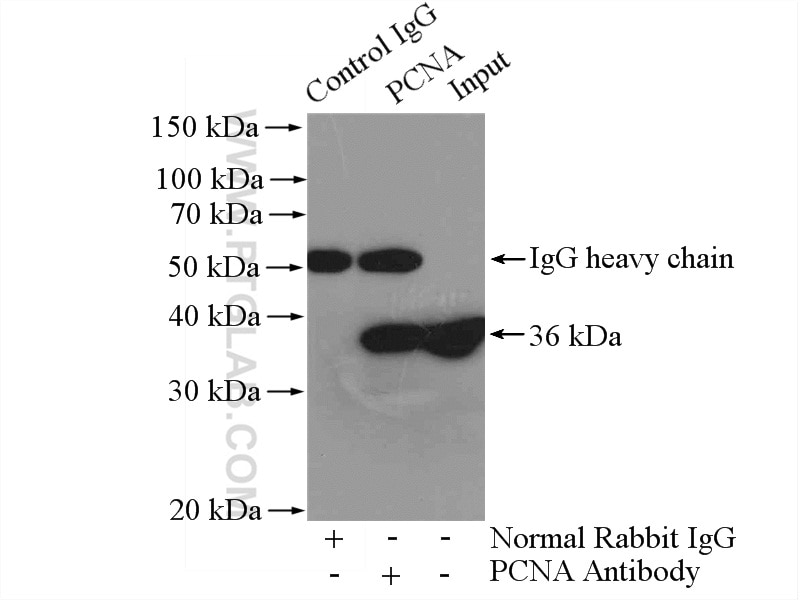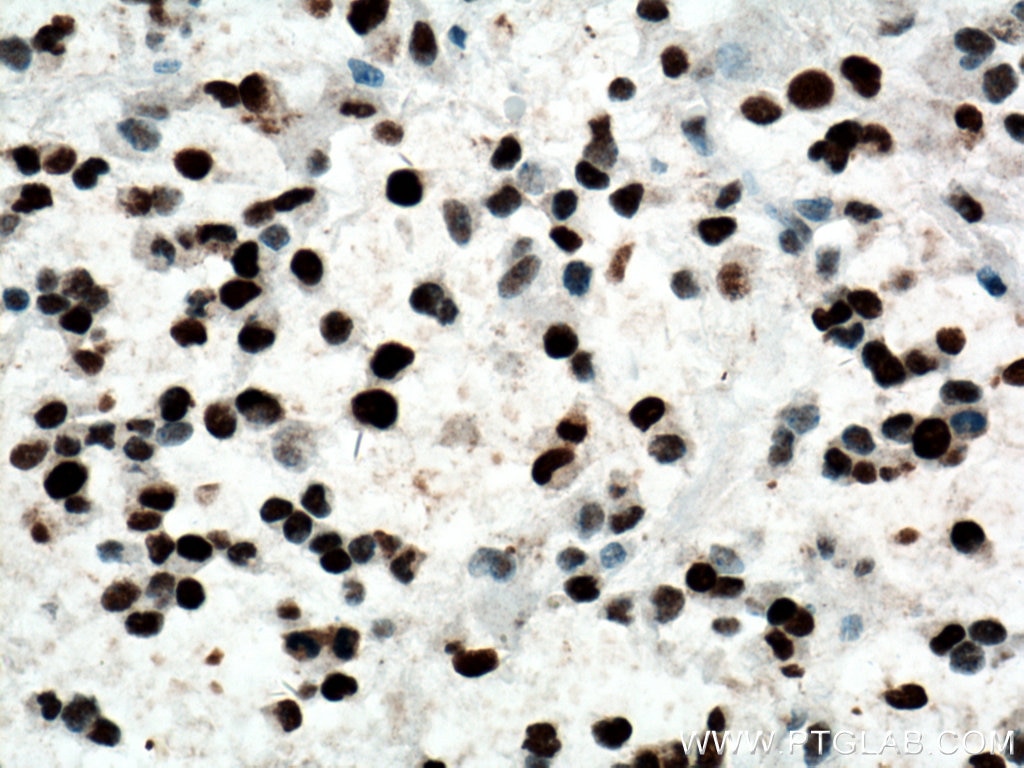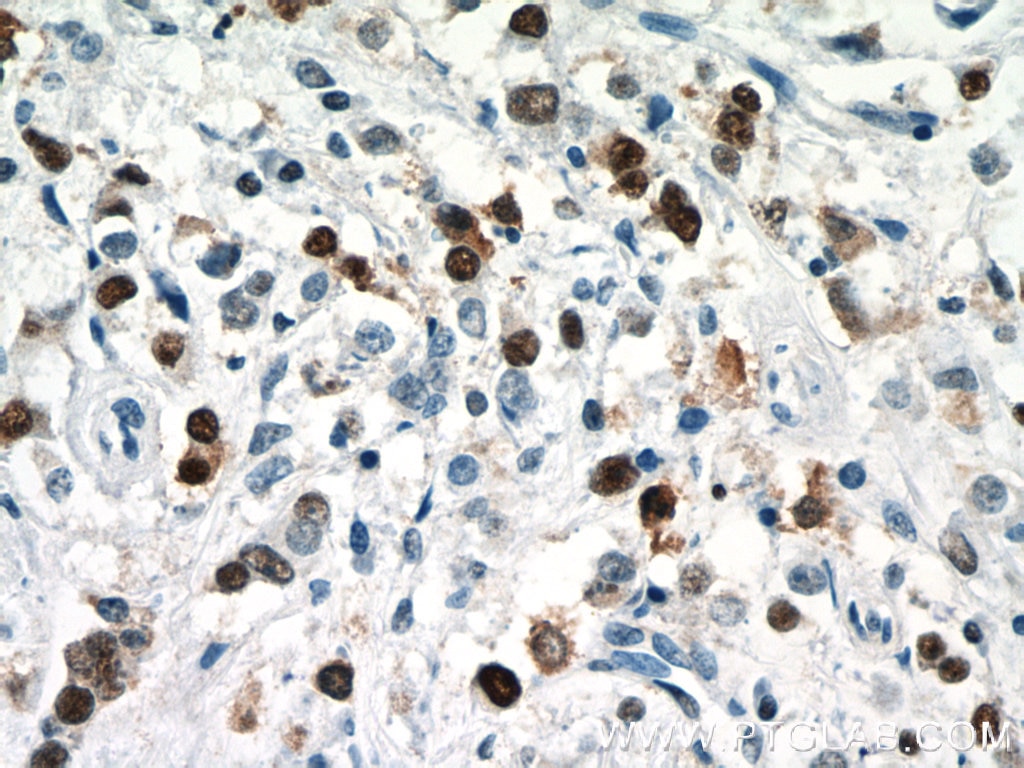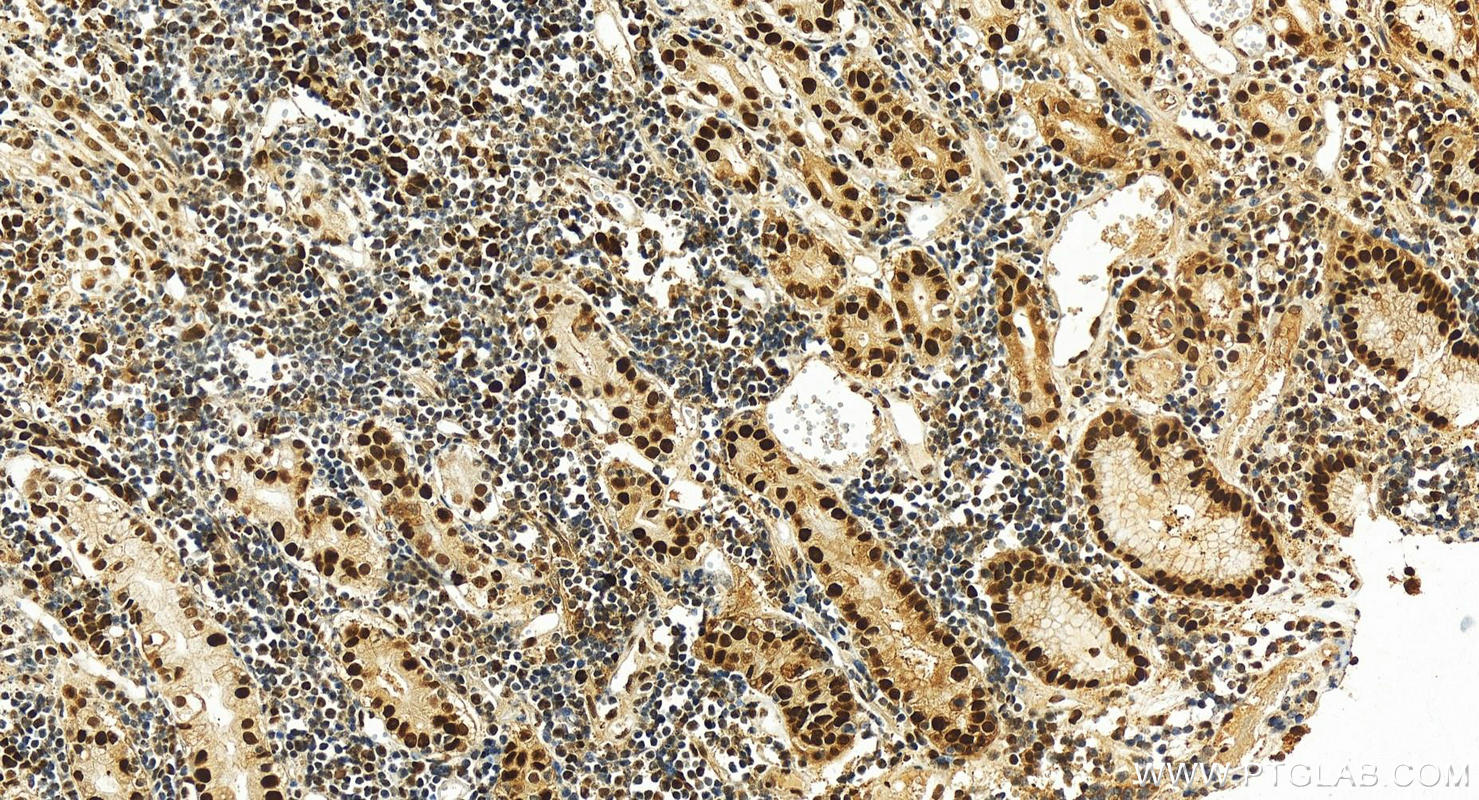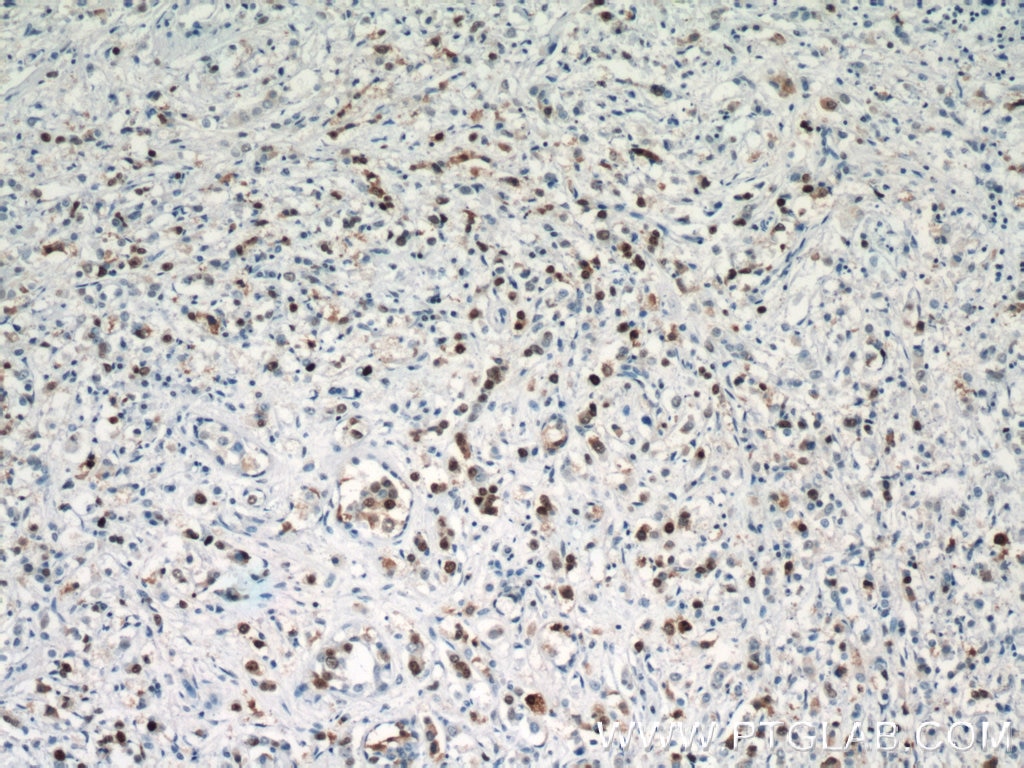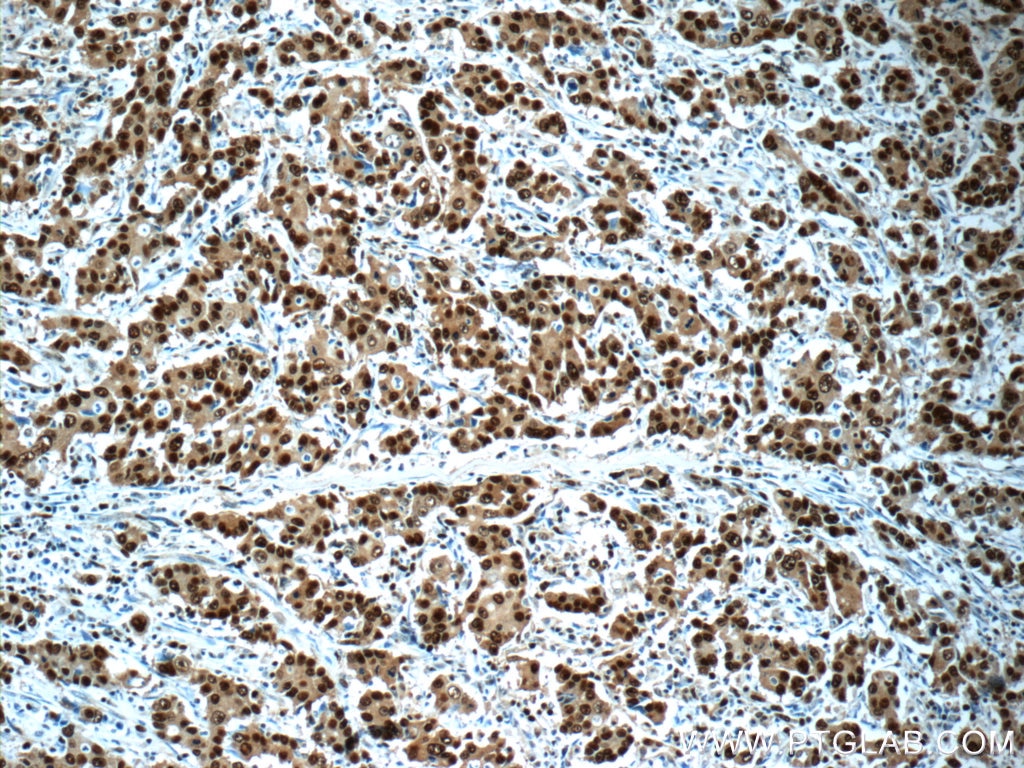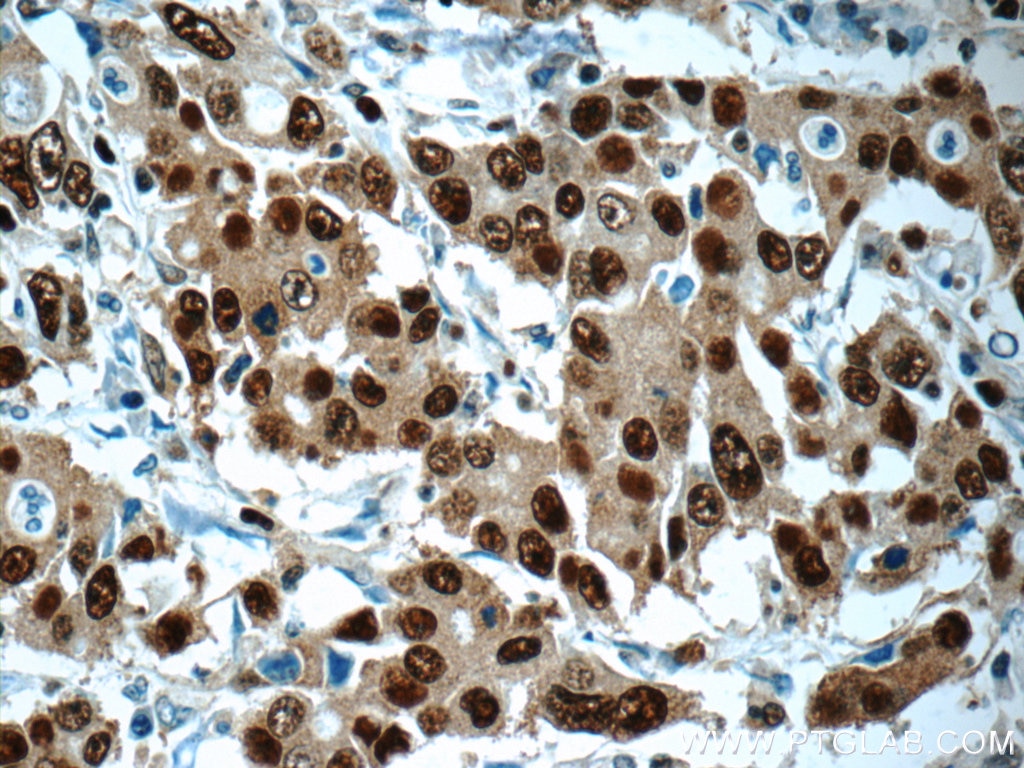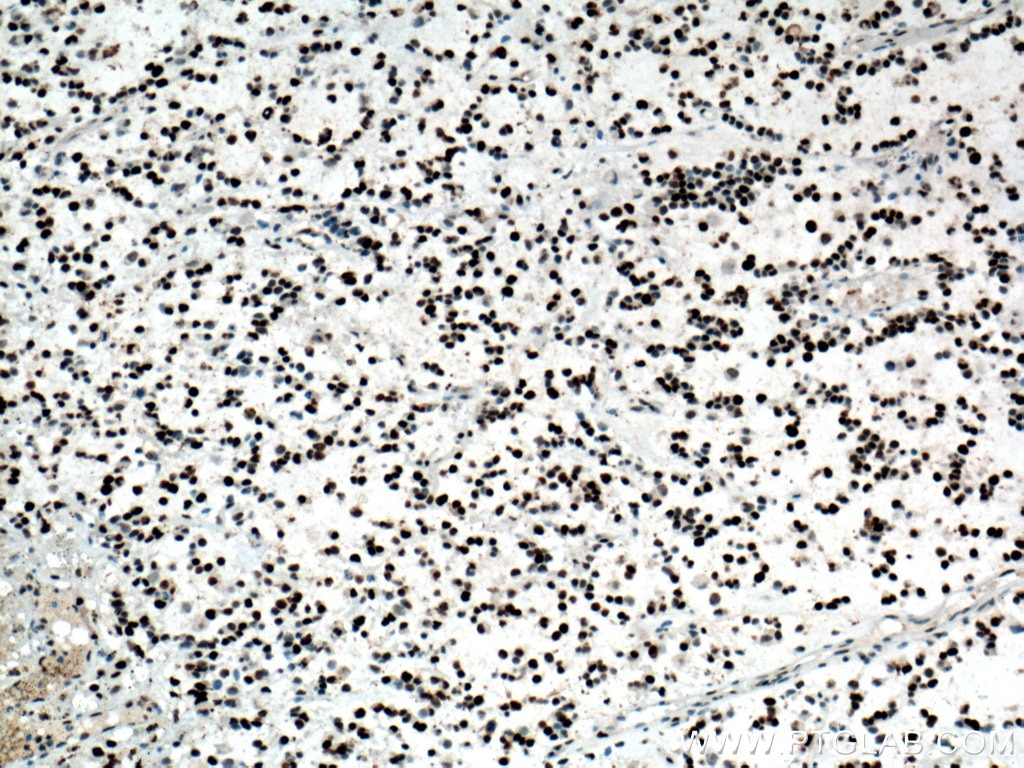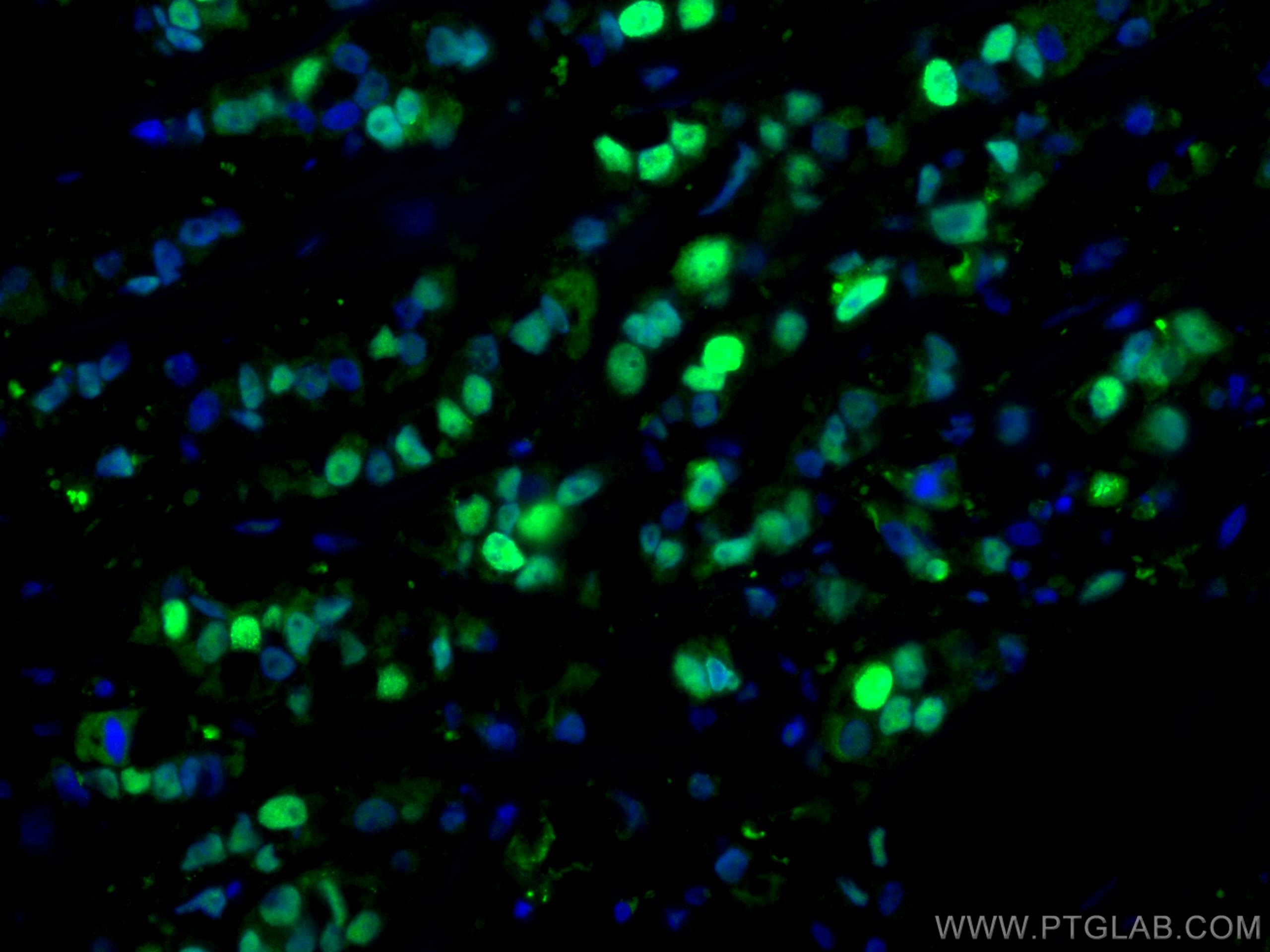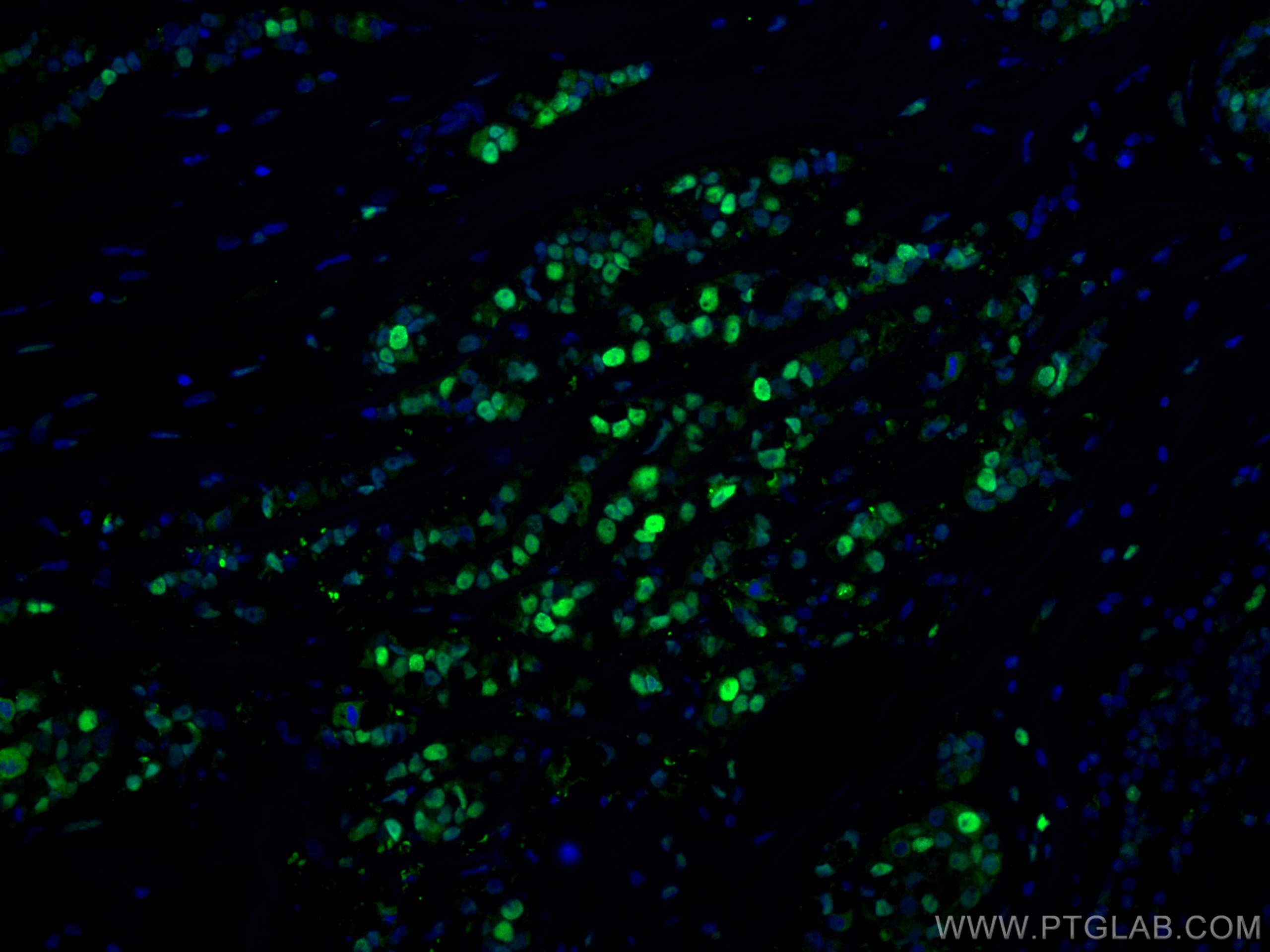Tested Applications
| Positive WB detected in | HeLa cells, mouse testis tissue, Raji cells, HEK-293 cells, NIH/3T3 cells, MCF-7 cells, rat liver tissue, HepG2 cells, Jurkat cells |
| Positive IP detected in | HEK-293 cells |
| Positive IHC detected in | human breast cancer tissue, human gliomas tissue, human stomach cancer tissue Note: suggested antigen retrieval with TE buffer pH 9.0; (*) Alternatively, antigen retrieval may be performed with citrate buffer pH 6.0 |
| Positive IF-P detected in | human breast cancer tissue |
Recommended dilution
| Application | Dilution |
|---|---|
| Western Blot (WB) | WB : 1:2000-1:14000 |
| Immunoprecipitation (IP) | IP : 0.5-4.0 ug for 1.0-3.0 mg of total protein lysate |
| Immunohistochemistry (IHC) | IHC : 1:20-1:200 |
| Immunofluorescence (IF)-P | IF-P : 1:50-1:500 |
| It is recommended that this reagent should be titrated in each testing system to obtain optimal results. | |
| Sample-dependent, Check data in validation data gallery. | |
Published Applications
| WB | See 18 publications below |
| IHC | See 16 publications below |
| IF | See 9 publications below |
| RIP | See 1 publications below |
Product Information
24036-1-AP targets PCNA in WB, IHC, IF-P, IP, RIP, ELISA applications and shows reactivity with human, mouse, rat samples.
| Tested Reactivity | human, mouse, rat |
| Cited Reactivity | human, mouse, rat, rabbit, zebrafish |
| Host / Isotype | Rabbit / IgG |
| Class | Polyclonal |
| Type | Antibody |
| Immunogen |
CatNo: Ag7416 Product name: Recombinant human PCNA protein Source: e coli.-derived, PET28a Tag: 6*His Domain: 8-256 aa of BC000491 Sequence: QGSILKKVLEALKDLINEACWDISSSGVNLQSMDSSHVSLVQLTLRSEGFDTYRCDRNLAMGVNLTSMSKILKCAGNEDIITLRAEDNADTLALVFEAPNQEKVSDYEMKLMDLDVEQLGIPEQEYSCVVKMPSGEFARICRDLSHIGDAVVISCAKDGVKFSASGELGNGNIKLSQTSNVDKEEEAVTIEMNEPVQLTFALRYLNFFTKATPLSSTVTLSMSADVPLVVEYKIADMGHLKYYLAPKIE Predict reactive species |
| Full Name | proliferating cell nuclear antigen |
| Calculated Molecular Weight | 29 kDa/31 kDa |
| Observed Molecular Weight | 36-38 kDa |
| GenBank Accession Number | BC000491 |
| Gene Symbol | PCNA |
| Gene ID (NCBI) | 5111 |
| RRID | AB_2879414 |
| Conjugate | Unconjugated |
| Form | Liquid |
| Purification Method | Antigen affinity purification |
| UNIPROT ID | P12004 |
| Storage Buffer | PBS with 0.02% sodium azide and 50% glycerol, pH 7.3. |
| Storage Conditions | Store at -20°C. Stable for one year after shipment. Aliquoting is unnecessary for -20oC storage. 20ul sizes contain 0.1% BSA. |
Background Information
The proliferating cell nuclear antigen (PCNA), a protein synthesized in early G1 and S phases of the cell cycle, functions in cell cycle progression, DNA replication and DNA repair. In early S phase, PCNA exhibits granular distribution and is absent from the nucleoli; however, in late S phase, it relocates to the nucleoli. PCNA exists in two basic forms: one involved in ongoing DNA replication, which localizes specifically to the nucleus, and a second, soluble form, not implicated in constant synthesis. Interestingly, the latter form degrades in the presence of organic solvents, rendering it undetectable by histological methods in tissues using organic fixatives, and thus also providing a method of visualizing only the synthesizing form.This antibody specifically react with the 36kd human PCNA protein.
Protocols
| Product Specific Protocols | |
|---|---|
| IF protocol for PCNA antibody 24036-1-AP | Download protocol |
| IHC protocol for PCNA antibody 24036-1-AP | Download protocol |
| IP protocol for PCNA antibody 24036-1-AP | Download protocol |
| WB protocol for PCNA antibody 24036-1-AP | Download protocol |
| Standard Protocols | |
|---|---|
| Click here to view our Standard Protocols |
Publications
| Species | Application | Title |
|---|---|---|
Int J Biol Sci Tendon Cells Root Into (Instead of Attach to) Humeral Bone Head via Fibrocartilage-Enthesis | ||
Biochem Pharmacol Plasma Exosomes Confer Hypoxic Pulmonary Hypertension by Transferring LOX-1 Cargo to Trigger Phenotypic Switching of Pulmonary Artery Smooth Muscle Cells | ||
Biochem Pharmacol CGRP attenuates pulmonary vascular remodeling by inhibiting the cGAS-STING-NFκB pathway in pulmonary arterial hypertension | ||
Am J Cancer Res YY1-induced lncRNA00511 promotes melanoma progression via the miR-150-5p/ADAM19 axis | ||
Hepatol Commun Hepatocellular carcinoma cells downregulate NADH:Ubiquinone Oxidoreductase Subunit B3 to maintain reactive oxygen species homeostasis |

